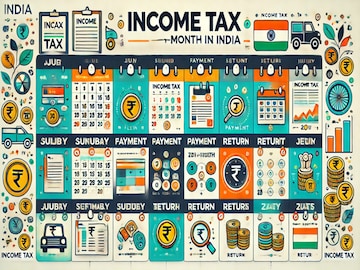SOURCE : NEW18 NEWS
Last Updated:January 18, 2025, 09:34 IST
Budget 2025 Expectations: Another major expectation is a rise in the basic exemption limit from Rs 3 lakh to Rs 5 lakh.
Budget 2025 Expectations: Rate cuts would provide the much-needed financial flexibility for households
As the Union Budget 2025 draws near, the anticipation among taxpayers and industry stakeholders is palpable. With the Indian economy navigating global uncertainties and domestic challenges, this year’s budget is expected to strike a balance between fiscal prudence and growth-oriented reforms. Citizens are looking forward to measures that could ease their financial burdens while stimulating job creation and investment. In this context, we delve into five key expectations for Budget 2025, enriched with perspectives from leading experts in finance and employment.
related stories
1. Higher Standard Deduction: A Crucial Relief for Salaried Individuals
According to Priyank Shah, Co-Founder & CEO of The Financialist, the middle-class salaried segment is hoping for an increase in the standard deduction from the current Rs 50,000 to Rs 1 lakh. “This adjustment would provide immediate financial relief by allowing taxpayers to retain more of their income,” he explains. In a time of rising living costs, this change could significantly enhance disposable income, boosting consumer demand and economic activity.
2. Increased Basic Exemption Limit to Rs 5 Lakh
Another major expectation from Budget 2025 is a rise in the basic exemption limit from Rs 3 lakh to Rs 5 lakh. Shah emphasizes that this adjustment would enable more individuals to earn without facing taxation. This measure could directly benefit lower and middle-income groups, providing them with much-needed financial flexibility.
3. Enhancing Deductions Under Section 80C
Raising the deduction limit under Section 80C from Rs 1.5 lakh to Rs 2.5 lakh is also on the wish list. Shah believes this move would encourage greater savings and investments, helping families secure their financial futures. This boost to investment incentives could also support long-term economic growth. He also urged increasing the rebate limit for taxable income up to Rs 8.5 lakh, which would further ease the tax burden on middle-class earners.
4. Inclusivity through Tax Reforms: Encouraging Female Workforce Participation
Lohit Bhatia, President of the Indian Staffing Federation, highlights the need for inclusivity in tax reforms. “Enhancing female labor force participation is crucial for inclusive growth. Under Section 80JJA of the Income Tax Act, the wage ceiling for tax benefits on new employment generation has not been revised for over a decade,” he notes.
Bhatia advocates for raising this threshold from Rs 25,000 to Rs 35,000 per month, along with an additional 50% benefit for hiring women workers. “This would incentivize organizations to employ more women while addressing inflationary realities,” he adds.
5. Tax Reforms to Empower Investors and Boost Financial Planning
Mayank Bhatnagar, Co-founder and COO of FinEdge, emphasizes the importance of empowering investors through expanded tax incentives on equity-linked investments. “Encouraging higher participation in equity markets through such incentives could bolster long-term wealth creation,” he states. Simplifying tax laws and aligning them with global best practices could enhance the efficiency of investment portfolios and encourage disciplined investing. Furthermore, he calls for policies focusing on long-term capital gains tax structures and incentivizing investments in asset classes like equity, which create long-term wealth. “Such measures are critical given the prevailing market volatility,” Bhatnagar asserts.
A Call for Comprehensive Reforms
In addition to the above, Shah underscores the importance of lower tax rates for middle-class earners. “Rate cuts would provide the much-needed financial flexibility for households,” he says. By implementing these reforms, the government can create a more equitable tax framework that drives economic growth.
Balancing Relief with Growth
These proposed changes could significantly impact taxpayers and the broader economy. From enhanced deductions to inclusivity-focused reforms and investor-friendly measures, Budget 2025 holds the promise of fostering financial well-being and inclusive growth. As millions await the Finance Minister’s announcements, there is hope that this budget will address the aspirations of the middle class while paving the way for sustainable development.








